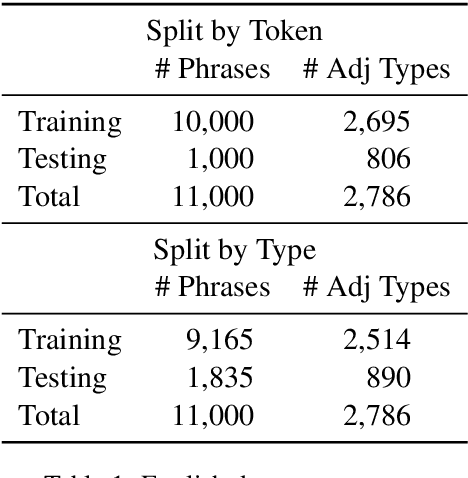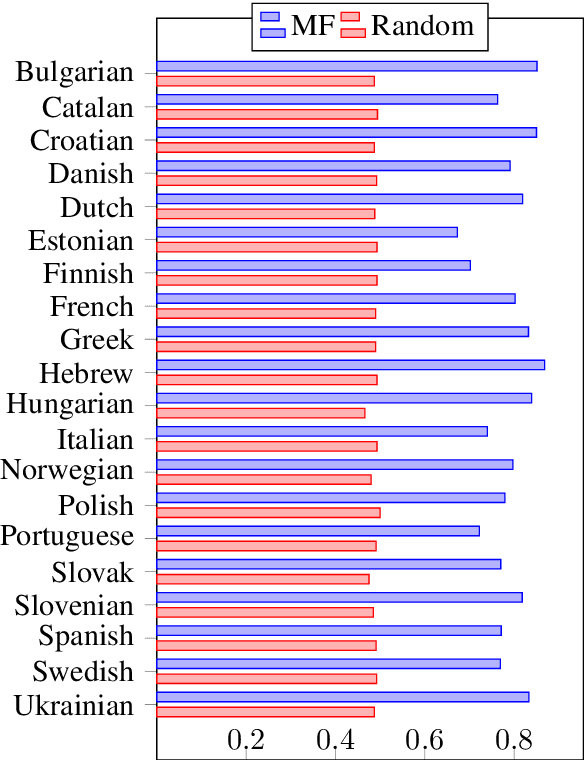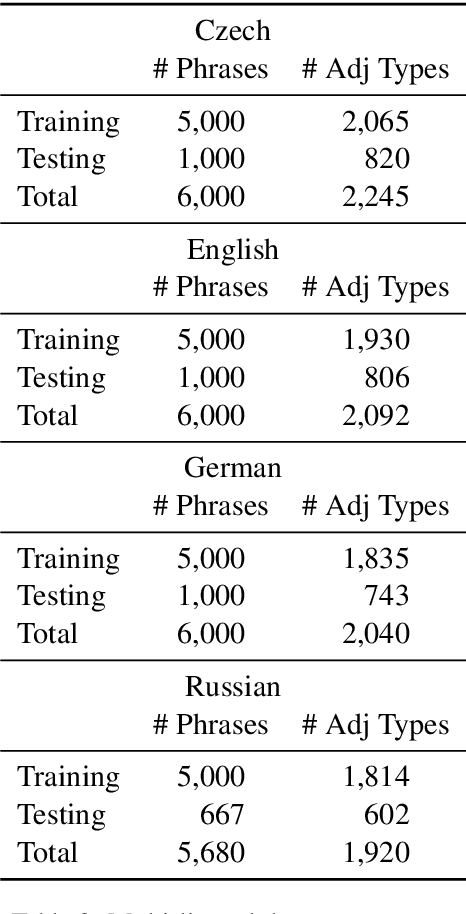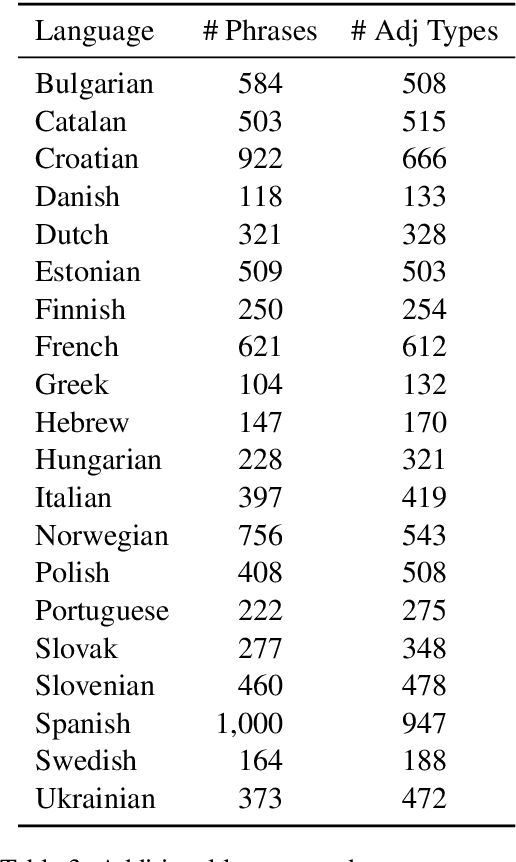Investigating Cross-Linguistic Adjective Ordering Tendencies with a Latent-Variable Model
Paper and Code
Oct 09, 2020



Across languages, multiple consecutive adjectives modifying a noun (e.g. "the big red dog") follow certain unmarked ordering rules. While explanatory accounts have been put forward, much of the work done in this area has relied primarily on the intuitive judgment of native speakers, rather than on corpus data. We present the first purely corpus-driven model of multi-lingual adjective ordering in the form of a latent-variable model that can accurately order adjectives across 24 different languages, even when the training and testing languages are different. We utilize this novel statistical model to provide strong converging evidence for the existence of universal, cross-linguistic, hierarchical adjective ordering tendencies.
* 13 pages, 7 tables, 1 figure. To be published in EMNLP 2020
proceedings
 Add to Chrome
Add to Chrome Add to Firefox
Add to Firefox Add to Edge
Add to Edge